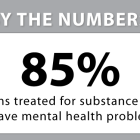Warning to Parents: Girls Who Are Bullied More Likely to Turn to Drugs
|
Girls who are bullied are at higher risk of substance abuse resulting from depression, according to a new study by Jeremy Luk at the University of Washington. Research had previously shown that both boys and girls who are victims of bullying may suffer from depression, but Luk’s research is the first to identify the link between victimization and substance abuse in girls. Luk says, “If your daughter is a victim of bullying, take it seriously, do all possible to prevent recurrence, and attend to possible depression and substance use.” His findings appear in the December issue of Prevention Science. The full text of the study is only available with a subscription but you can read more at sciencedaily.com.

